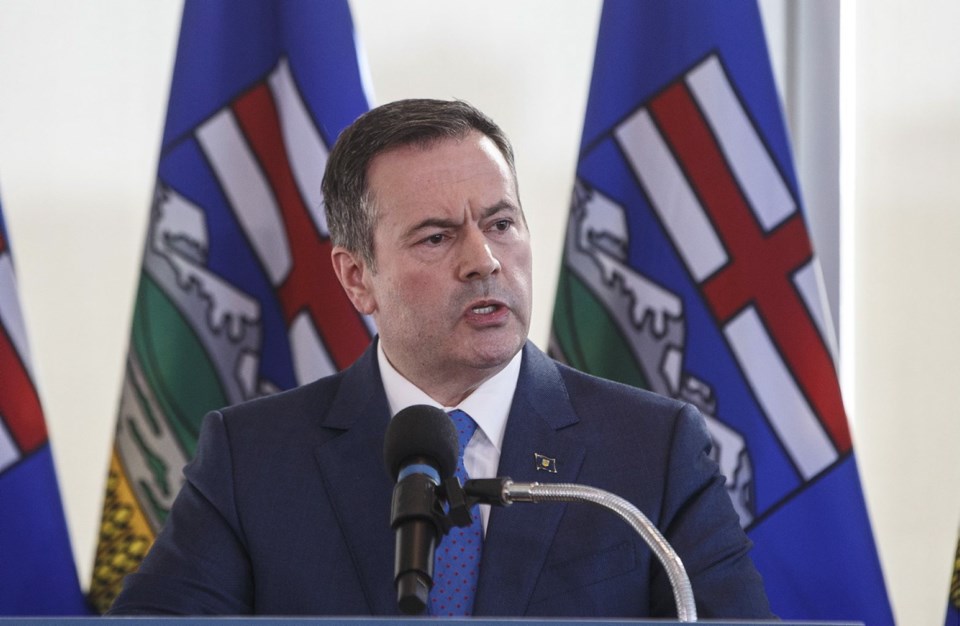A group of Conservative MPs in Alberta has published a manifesto they call the Buffalo Declaration. This windy attempt at stoking resentment argues that Alberta is the victim of numberless injustices imposed by Ottawa.
Some quotes: “Alberta is not, and never has been, an equal participant in Confederation.”
Again: “Alberta is a culturally distinct region, but this has not been recognized.”
And one more: “Ottawa must issue a formal apology for the 1980 National Energy Program … designate Alberta a ‘culturally distinct region within Canada’ … and re-open the Constitution to give Western Canada greater representation in parliament.”
And if these demands aren’t met? The group doesn’t say so explicitly, but the unstated threat is that Alberta might hold a referendum on separating from Canada, as Quebec has twice done.
So what are we to make of this primal scream? That the Constitution will not be re-opened goes without saying. Doing so would require the approval of the House of Commons, the Senate and two-thirds of the provinces which have, among them, at least 50 per cent of the population. Good luck with that. Ontario and Quebec would never agree.
A formal apology from Ottawa for the National Energy Program? Not while Justin Trudeau, the son of its originator, holds office.
But what about the distinct culture stuff? In one sense, it’s noise and fury signifying nothing. B.C. has a culture every bit as distinct. So does Saskatchewan with its large immigrant Ukrainian population. Ditto any one of the Atlantic provinces.
Start down that road, and everyone else will follow. Once we’re all distinct cultures, what have you gained?
Nevertheless, the claim that Alberta differs from the rest of the country is true in one important (and at present highly visible) respect.
After decades of flagrant and wanton overspending, the government of that province is broke.
Current estimates are that the deficit this year will reach $20 billion. In fairness, some of that derives from low oil prices. And the province has suffered at the hands of pipeline protesters whose self-righteousness knows no limits.
But for years, premiers such as Peter Lougheed (a.k.a. the blue-eyed sheikh), revelled in the province’s oil wealth and rubbed the rest of the country’s face in it.
Kananaskis Provincial Park was built at immense cost with one purpose in mind — to outdo Banff National Park.
Just about every area of the public sector offered the highest wage scales in Canada, while Alberta’s officials time and again wrecked efforts by the poorer regions to keep a lid on salary levels.
You can see the comeuppance now, as Premier Jason Kenney rolls back the wages of teachers, university staff and nurses, while slashing budgets across the public sector.
If I may digress, these cuts provoked a laughable effort at grandstanding. Faced with budget shortfalls, the University of Lethbridge has shut down its men’s and women’s hockey teams (though, inexplicably, women’s rugby lives on).
When I worked in government, we called this the Washington Monument Syndrome. The reason being, some years ago, when budget cuts were called for in the U.S., that country’s parks department responded by proposing to shut down the Washington Monument. The implication being:See what you’ve driven us to.
Same thing at the University of Lethbridge. The board and management know how popular the hockey teams are. This is self-mutilation aimed at provoking sympathy.
In any event, Alberta is now experiencing the consequences of living in a cocoon of smugness, epic mismanagement and disdain for the rest of the country.
If you want to call that a distinct culture, go ahead. But those of us who lived next door, as I did in Saskatchewan, have long memories.
Lougheed died in 2012, but his legacy is only now becoming clear.
- - -
To comment on this article, send a letter to the editor.
• Email: [email protected]
• Mail: Letters to the editor, Times Colonist, 2621 Douglas St., Victoria, B.C. V8T 4M2.
Letters should be no longer than 250 words and may be edited for length, legality or clarity. Avoid emailing your letter as an attachment. Please include contact information; we require your first and last name and the municipality where you live for the letter to be considered for publication.



